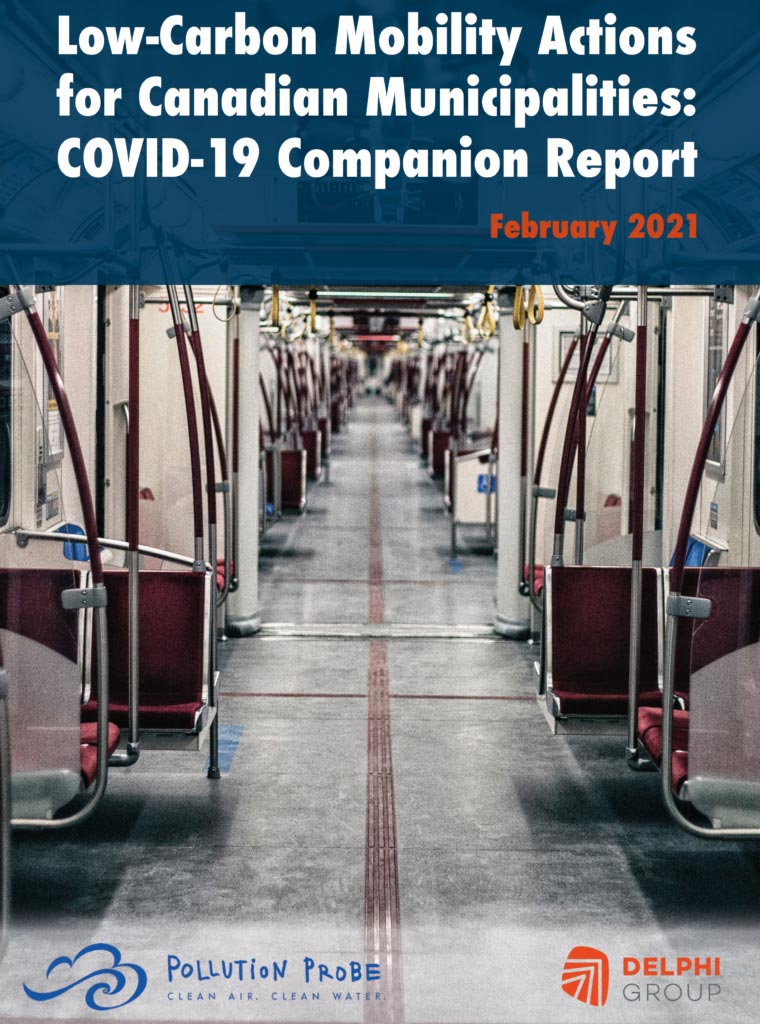Low-Carbon Mobility Actions for Canadian Municipalities COVID-19 Companion Report
As a follow-up to the report Opportunities for Low-Carbon Mobility Actions in Canadian Municipalities: Best Practices and Guidance, Pollution Probe was contracted by Natural Resources Canada to develop a companion piece which details the impacts of the COVID-19 pandemic on actions explored in the original report. The companion report also provides an overview of how the pandemic has impacted travel patterns and modal choice in Canadian and global cities, with a focus on public transit.
Key findings detailed in the report include:
Remedial actions taken by municipalities and transit agencies throughout Canada and globally are largely consistent
An analysis of transit ridership levels, epicenters of outbreaks, and teleworking demographics indicates that COVID-19 is largely a blue-collar disease. This suggests that cities should prioritize mobility actions that explicitly address the challenges faced by low-income, marginalized communities
Cities are prioritizing actions to enhance the feasibility of active transportation options. Other innovative measures taken include support for off-peak freight deliveries, transit-on-demand pilots, and expanding micro-mobility options
Cities are not cancelling transportation decarbonization plans or targets as a result of the pandemic, but funding is a major challenge, and has led to certain actions being delayed.
Privately-owned vehicles are viewed by most as the safest mode of travel, and preliminary findings suggest that ownership levels have been increasing in cities. As a result, cities should continue to prioritize actions that encourage passenger zero-emission vehicle adoption.
Teleworking is a trend that is likely to persist after the virus begins to subside. It presents a wide range of possible pros and cons related to transportation emissions and congestion levels, which warrants further research and action on the part of cities.
Pollution Probe will continue to monitor mobility impacts stemming from the pandemic. Please feel free to reach out to our transportation team if you would like to discuss any of our findings.

